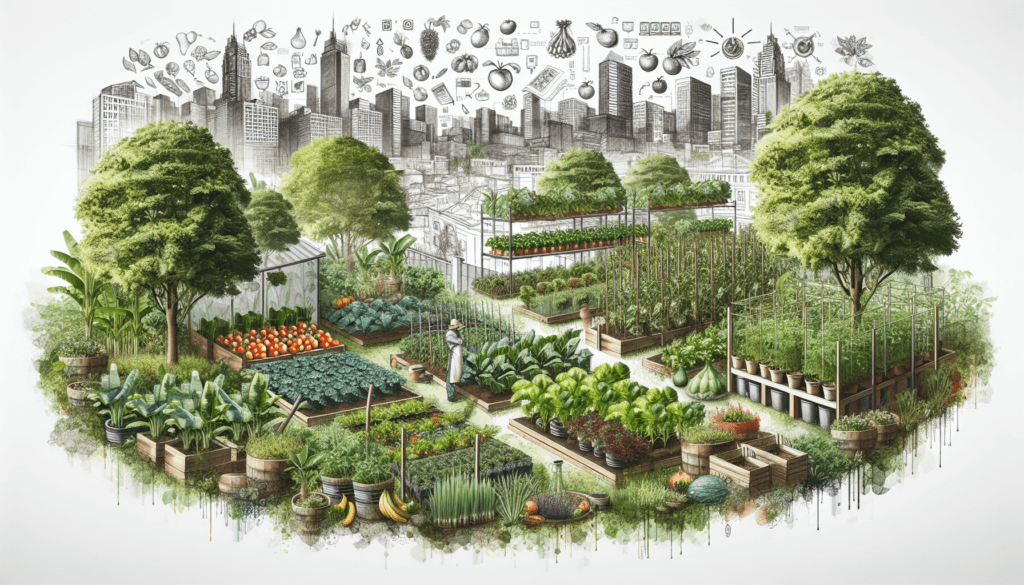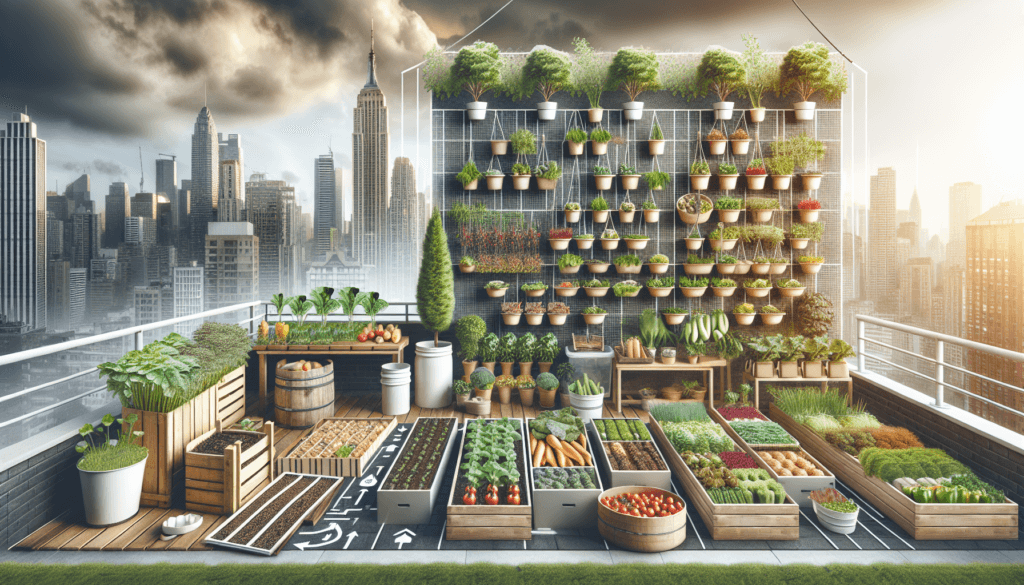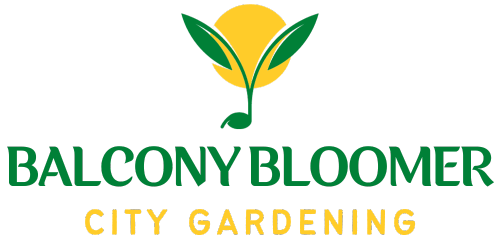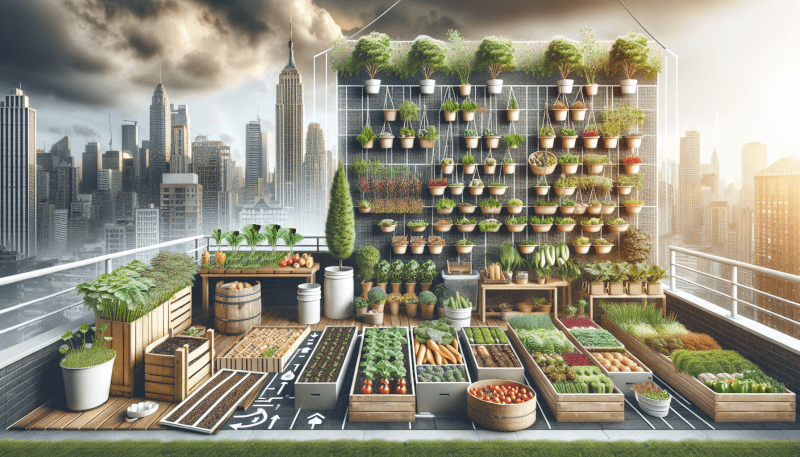Growing your own organic produce in an urban garden may seem like a daunting task at first, but with a few tips and tricks, you can create a thriving green oasis right in the heart of the city. From choosing the right plants for your space to utilizing vertical gardening techniques, this article will guide you through the essentials of urban gardening, helping you create a sustainable and bountiful garden that will not only provide you with fresh, delicious produce but also contribute to a healthier and greener environment. So grab your gardening gloves and let’s get started on this exciting journey of urban gardening!

Choosing the Right Location
When it comes to growing organic produce in an urban garden, one of the first things you need to consider is the location. Assessing the available space is crucial in determining the feasibility of having a successful garden. Look for an area that receives adequate sunlight throughout the day, as most plants require at least six to eight hours of sunlight to thrive. Additionally, ensure proper drainage to prevent waterlogging, as excessive moisture can lead to root rot and other plant diseases.
Preparing the Soil
Preparing the soil is essential for creating a healthy and fertile environment for your plants. Start by testing the soil quality to determine its nutrient content and pH levels. This information will guide you in making the necessary amendments to improve the soil’s composition. Incorporating organic matter, such as compost or well-rotted manure, will enhance the soil’s structure, drainage, and nutrient-holding capacity. Additionally, adjusting the pH levels to match the requirements of your chosen crops will help ensure optimal growth and productivity.

Selecting Suitable Crops
When selecting crops for your urban garden, it’s important to research and choose plants that are well-suited for the urban environment. Some plants are more adaptable to the limited space and potential challenges that come with urban gardening. Consider the space requirements of each plant, as some may require more vertical growth while others may require more horizontal space. Furthermore, finding the right varieties, such as compact or dwarf varieties, can help maximize your yields in a limited area.
Starting from Seeds or Transplants
Deciding whether to start your plants from seeds or transplants is an important consideration in urban gardening. Each option has its advantages and challenges. Growing plants from seeds allows you to have a wider selection of varieties and is often more cost-effective. However, it requires more time and effort because you’ll need to germinate the seeds indoors and nurture them until they are ready to be transplanted outdoors. On the other hand, opting for healthy transplants saves time and provides a head start, but you may have fewer options to choose from.

Implementing Companion Planting
Companion planting is a gardening technique that involves growing different plants together to benefit each other. Understanding the concept of companion planting and choosing beneficial plant combinations can greatly enhance the health and productivity of your organic garden. For example, planting marigolds alongside tomatoes can help deter pests, while interplanting herbs like basil and rosemary can attract beneficial insects. It’s important, however, to avoid incompatible pairings that may compete for nutrients or be susceptible to the same pests and diseases.
Providing Adequate Watering and Irrigation
Proper watering and irrigation practices are crucial for maintaining a healthy and productive garden. Establishing a watering routine is essential to ensure that your plants receive the right amount of moisture. Watering deeply and less frequently encourages deep root growth and helps plants become more resilient to drought. Choosing efficient irrigation methods, such as drip irrigation or soaker hoses, can reduce water wastage and promote even distribution. Regularly monitoring the soil moisture levels will help you adjust your watering schedule accordingly.

Managing Pests and Diseases Organically
To maintain an organic garden, it’s important to manage pests and diseases using natural methods. Identifying common pests and diseases is the first step in preventing and managing issues effectively. Encouraging beneficial insects, such as ladybugs and lacewings, can help control pest populations naturally. Additionally, using natural pest control methods like neem oil or insecticidal soaps can be effective in combating pests while minimizing harm to beneficial insects. Regularly inspecting your plants for any signs of pests or diseases and taking prompt action is key to maintaining a healthy garden.
Implementing Organic Fertilization Practices
Organic fertilization is a vital aspect of organic gardening. Choosing organic fertilizers, such as compost or fish emulsion, ensures that your plants receive the necessary nutrients without the risk of chemical buildup in the soil or groundwater. Incorporating compost and vermicompost into the soil adds organic matter and beneficial microbes, improving soil fertility and structure. It’s important to apply fertilizers properly, following package instructions and avoiding over-application, which can lead to nutrient imbalances or burn the plants.

Maintaining Garden Health and Productivity
To keep your organic garden healthy and productive, regular maintenance tasks are essential. Regular weeding helps reduce competition for nutrients and ensures that weeds don’t overtake your crops. Mulching around plants with organic materials like straw or wood chips helps conserve moisture, suppress weeds, and regulate soil temperature. Additionally, pruning and shaping plants, such as removing dead or damaged branches, helps promote proper airflow and sunlight penetration, reducing the risk of diseases.
Harvesting and Storing Organic Produce
Knowing when to harvest your organic produce is crucial for optimal flavor and nutritional value. Different crops have different harvest times, so it’s important to research and understand the specific signs of readiness for each plant. Handle harvested crops with care to prevent bruising or damage. Washing them gently to remove any soil or debris is recommended, but avoid washing them too far in advance as it can reduce their shelf life. Properly storing produce, whether in a cool pantry or a refrigerator, will help maintain freshness and extend their usable lifespan.
By following these tips and implementing organic practices, you can enjoy the benefits of growing your own organic produce in an urban garden. Not only will you have access to fresh and pesticide-free fruits and vegetables, but you’ll also contribute to a healthier environment and create a green oasis in the midst of the urban landscape. Happy gardening!


